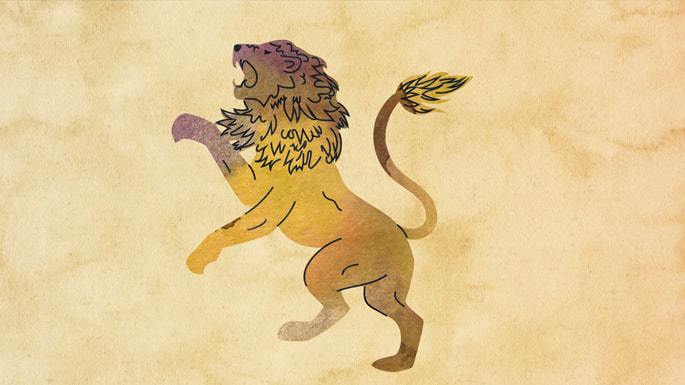As I write, miracles are unfolding before our eyes. The threat of an imminent nuclear attack has been foiled. The Israel Air Force dominates the skies of Iran. The massive retaliation expected has amounted instead to a few enemy missiles breaking through defenses. And while they have tragically and unforgivably taken innocent lives, it is clear to all that miracles abound.
Over the course of nearly half a century, the Rebbe, Rabbi Menachem M. Schneerson, of righteous memory, taught that as Jews we seek the guidance of Torah on all matters of life, from our day-to-day activities to matters of war and peace.
The same Torah that commands us not to murder, underscores the vital importance of protecting the lives of the innocent, and guides us how and when to fight wars.
The Talmud teaches: “If someone comes to kill you, rise to kill him first.”
“Since we know that the ‘other’ has indeed ‘come to kill you,’” the Rebbe explained in 1969, elucidating the Torah’s principle in the context of Israel’s position in the Middle East, “the Torah commands us to ‘rise early to kill him.’ The instruction is clear: Do not wait until the other comes to annihilate you. That could, G‑d forbid, already be too late. Rather one must ‘rise and kill him first.’”1
True morality is not based on the whims of man, but the commandments of the just and merciful G‑d. Just as murder contravenes G‑d’s will and compassion for the lives He has made, so too, when lives can be saved by decisive, preemptive measures, we carry out the divine will to protect the lives of the innocent.
“And when the Jewish people go out with clear strength,” the Rebbe continued, “signaling to the enemy that we are not afraid of anyone—we are not afraid of the ‘chariots’ or of the ‘horses’ since ‘we [trust] in the name of the L-rd our G‑d’—then ‘the fear of the Jewish people will fall upon them’”2 and ensure decisive victory.
The cabinet meeting that signed off on the preemptive strike upon Iran and its nuclear facilities was opened with a prayer and closed with the recitation of Psalms. Earlier that afternoon, Israeli Prime Minister Binyamin Netanyahu approached the Kotel, the ancient Western Wall in Jerusalem, wearing a tallit with the biblically prescribed tzitzit tassels on the garment’s four corners. As Jews have done at the hallowed site for 2,000 years, he prayed. On his note of supplication, he invoked the verse “Behold a people that rises like a lioness and leaps up like a lion!,” asking for G‑d’s help.
(The verse, from Numbers,3 alludes also to the name of the bold military actions Israel would commence in a matter of hours, fighting that is still ongoing: Operation Rising Lion.)

That the country’s leadership turned to G‑d in prayer before launching an attack on a large, well-armed and blood thirsty enemy was apropos, for in a battle pitting natural resources, strength and size alone, the Jewish people are at an obvious disadvantage. But our survival has never been a natural one. Rather, it is when we put our trust in G‑d that we emerge victorious.4
In light of this reality, we recognize that as vital as planes, drones and secret operatives are for battle—we must create the material conditions for victory—it is our prayer, Torah study and performance of mitzvot that are our ultimate medium for divine blessing and supernatural success.
“Behold a people that rises like a lioness and leaps up like a lion.” What does this mean? The master commentator Rashi explains:
When they arise from sleep in the morning, they overcome obstacles like a fearsome lion. And like a lion, they grab the opportunity to perform mitzvahs: to wear a tallit, to recite the Shema, and to put on tefillin.
The Rebbe points out that Rashi is clearly teaching us that this verse does not refer simply to the physical might and heroism of the Jewish people.5 Instead, it invokes the mitzvahs Jews race to do each morning as the true source of their strength: tzitzit, Shema and tefillin. In its instructions to us, the Torah connects each of these three mitzvahs to the foundational miracle of our nationhood, the Exodus from Egypt. “I am the L-rd your G‑d, Who brought you out of the land of Egypt.”6
These three in particular evoke the Exodus in thought, speech and deed.
- The tzitzit that Jewish men and boys wear serve as a constant reminder to think about the G‑dly miracle of the Exodus.
- In verbally reciting the Shema prayer daily, we recount the Exodus in our speech.
- And when we put on tefillin, we signal with our actions—to ourselves and to others—that G‑d delivered us from Egypt “with a mighty hand.”
So rises a Jewish lion.

During the 1991 Persian Gulf War, the dictator of Iraq, a man whose name dominated headlines then and for decades and is today all but forgotten, fired 39 Scud missiles at Israel, and nothing happened. At the time the Rebbe called upon everyone “to give full attention” to the wondrous events that had unfolded. “These were revealed miracles, obvious miracles, not only for Jews but also for all nations, ‘seen in all the corners of the earth’; everyone saw the great miracles that unfolded at this time,” he wrote.
The war had reached its climax around the holiday of Purim, which marks the miraculous salvation of the Jewish people in ancient Persia during the times of Mordechai and Esther. That place is now known as Iran. As we continue to witness the unfolding of this unprecedented war, we must once again recognize the revealed miracles taking place, both in the execution of the strikes in Iran, and in the defense of the Land of Israel.
“Our Torah teaches and directs us to guard against speaking in terms of predicting evil,” the Rebbe wrote then. “We pray that henceforth there will be only good tidings, in the kind of good that is revealed and obvious.”
Having taken the Torah’s initiative to “rise and kill” the Jewish people’s enemies first, it is now in the hands of the People of Israel to rise like lions in the study of Torah and performance of mitzvot. For it is by increasing our efforts to elevate our daily conduct to the level of the supra-natural that we merit miraculous victories drawing from that same place outside the bonds of nature, preparing us and the world for fulfillment of the prophesy: “As in the days of your liberation from Egypt will I show you wonders.”7








Join the Discussion